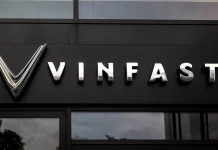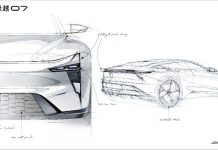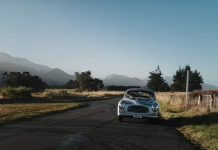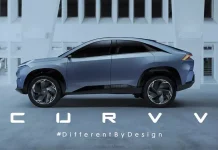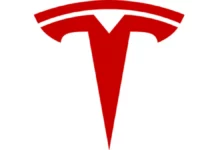Force Motors
Force Motors faces significant challenges due to its non-compliance with Corporate Average Fuel Efficiency (CAFE) norms, largely because it relies on diesel engines and lack of petrol, hybrid, or electric alternatives. This situation raises concerns about their long-term sustainability in a market rapidly shifting towards more environmentally friendly and fuel-efficient technologies.
The company’s current strategy, which includes continuing with older engine models and not displaying a commitment to alternative fuels, could lead to financial burdens from fines and impact its brand image. Force Motors needs strategic redirection towards diversifying engine options and adapting to global automotive trends for future success.

CAFE Norms
Force Motors’ situation, as described, indeed poses significant challenges, particularly in the context of the increasingly stringent Corporate Average Fuel Efficiency (CAFE) norms. Their reliance on diesel engines, absence of petrol, hybrid, or electric alternatives, and a portfolio limited to ladder frame chassis vehicles puts them at a distinct disadvantage in an automotive market that is rapidly shifting towards more environmentally friendly and fuel-efficient technologies.
Diesel Engines
Analysis of the Situation:
- Compliance with CAFE Norms: The CAFE norms are designed to reduce CO2 emissions by pushing manufacturers to develop more fuel-efficient vehicles. Force Motors’ current portfolio, lacking in petrol, hybrid, or electric options, struggles to meet these norms, leading to the fine. This highlights a strategic gap in their product development.
- Market Shifts: The global automotive market is rapidly moving towards electrification. Major automakers are investing heavily in electric and hybrid technologies. Force Motors’ apparent lack of progress in these areas is a strategic concern, especially in markets like India, which are increasingly embracing electric vehicles (EVs).
- Financial Implications: Repeated fines for non-compliance with CAFE norms can create significant financial burdens. This, coupled with potentially lower consumer demand for less fuel-efficient vehicles, could impact Force Motors’ profitability and long-term financial health.
- Product Development Strategy: The decision to continue with the 2.6L Mercedes-derived engine, despite having a more modern 2.2L engine, might be influenced by various factors like cost, feasibility, and strategic focus. However, this choice may not align well with evolving market demands and regulatory pressures.
- Brand Image and Market Positioning: As environmental concerns become more pronounced, consumers may prefer brands that demonstrate a commitment to sustainability. Force Motors’ current trajectory might affect its brand image, especially among environmentally conscious buyers.
Automotive Innovation
Long-Term Sustainability:
For Force Motors to sustain and grow in the long term, they would likely need to:
- Diversify Engine Options: Introduce petrol, hybrid, or electric engines to diversify their portfolio and reduce dependence on diesel engines.
- Invest in R&D for Alternative Fuels: Engage in research and development for alternative fuel options and more efficient vehicle designs.
- Adapt to Market Trends: Acknowledge and adapt to the global shift towards electrification and more stringent emission norms.
- Strategic Partnerships: Collaborate with other automakers or technology firms to accelerate the development of environmentally friendly vehicles.
Market Competitiveness Automotive
Impact on the company
The impact on Force Motors from not complying with the Corporate Average Fuel Efficiency (CAFE) norms and lagging in the development of more environmentally friendly vehicles can be multi-dimensional:
- Financial Impact: Non-compliance with CAFE norms results in fines, as evidenced by the Rs. Seventy lakhs penalty. This financial burden could escalate if the company continues to miss these regulatory benchmarks. Additionally, the cost of transitioning to newer technologies may require significant capital investment.
- Market Competitiveness: With the global automotive industry rapidly shifting towards electric and hybrid vehicles, Force Motors’ reliance on traditional diesel engines may hinder its competitiveness. The absence of petrol, hybrid, or electric vehicles in its portfolio could result in a loss of market share to more innovative competitors.
- Brand Perception and Consumer Demand: Modern consumers are increasingly environmentally conscious. Force Motors’ current approach might negatively impact its brand perception, leading to a potential decline in consumer demand, especially among those prioritizing sustainability and fuel efficiency.
- Regulatory Risks: Continuous non-compliance with evolving emission norms can lead to increased regulatory scrutiny and additional penalties, creating a challenging operating environment for the company.
- Strategic Limitations: The focus on older diesel engine technologies might limit the company’s ability to innovate and adapt to future automotive trends. This could affect long-term strategic opportunities and partnerships.
- Investor Confidence: Investors are increasingly considering environmental, social, and governance (ESG) factors in their decisions. The current trajectory could impact investor confidence, affecting the company’s ability to attract investment for future growth and innovation.
- Global Opportunities: As many countries adopt stricter environmental standards, Force Motors’ current portfolio might limit its ability to enter or expand in international markets, reducing its global growth potential.
- Operational Challenges: Transitioning to new technologies requires not just an investment but also a change in the operational and manufacturing processes, which can be a complex and time-consuming endeavour.
For Force Motors, adapting to the changing automotive landscape is not just about compliance and avoiding fines, but also about seizing opportunities for innovation, market expansion, and enhancing brand value. Their ability to pivot and embrace newer, cleaner technologies will be crucial for their long-term sustainability and success in the automotive sector.
Force Motors: Pros and Cons
| Feature | Pros | Cons |
|---|---|---|
| Brand Reputation | Strong reputation for rugged and reliable commercial vehicles | Limited brand recognition for passenger vehicles |
| Market Expertise | Strong presence in niche markets like off-road and commercial vehicles | Lack of presence in mainstream passenger vehicle segments |
| Expansion Plans | Ambitious plans for new passenger vehicles | Current reliance on outdated technology hinders growth |
| Technology | Experience with diesel engines | Lack of petrol, hybrid, and electric options |
| Chassis Design | Durable body-on-ladder chassis suitable for rugged conditions | Limits vehicle variety and fuel efficiency |
| Alternative Fuels | No visible research and development in petrol, hybrid, or electric technologies | Raises concerns about long-term sustainability and CAFE compliance |
| Financial Position | Potential for growth with expansion | Fines for CAFE non-compliance could strain resources |
| Collaboration Potential | Openness to partnerships with other automakers | Lack of concrete collaborations announced |
Conclusion:
Force Motors faces a critical juncture, requiring strategic redirection to align with the evolving automotive landscape. Without adaptation, they risk falling behind in a rapidly changing market, leading to potential financial and reputational damage. Embracing change and innovation in vehicle technology will be key to their long-term sustainability in the automotive world.
To address the challenges posed by the evolving automotive landscape and regulatory requirements, Force Motors must undertake a strategic overhaul. This involves diversifying their engine portfolio to include petrol, hybrid, and electric options, investing in research and development for alternative fuels, and aligning with global trends towards environmentally friendly vehicles.
Engaging in strategic partnerships and collaborations could also accelerate this transition. Stakeholders, including investors, customers, and industry partners, are encouraged to actively participate and support Force Motors in this transformative journey, ensuring its long-term sustainability and success in the automotive industry.

